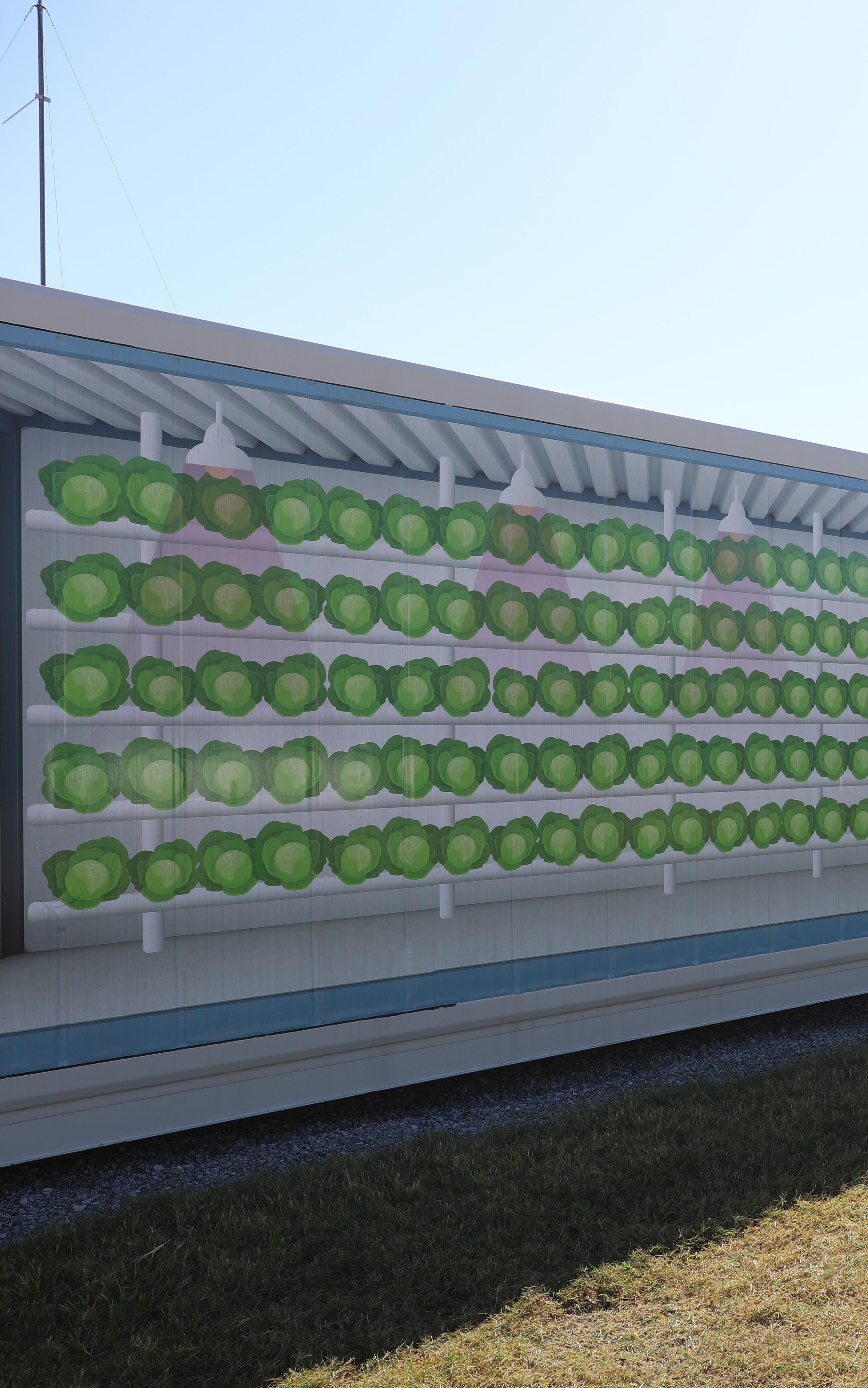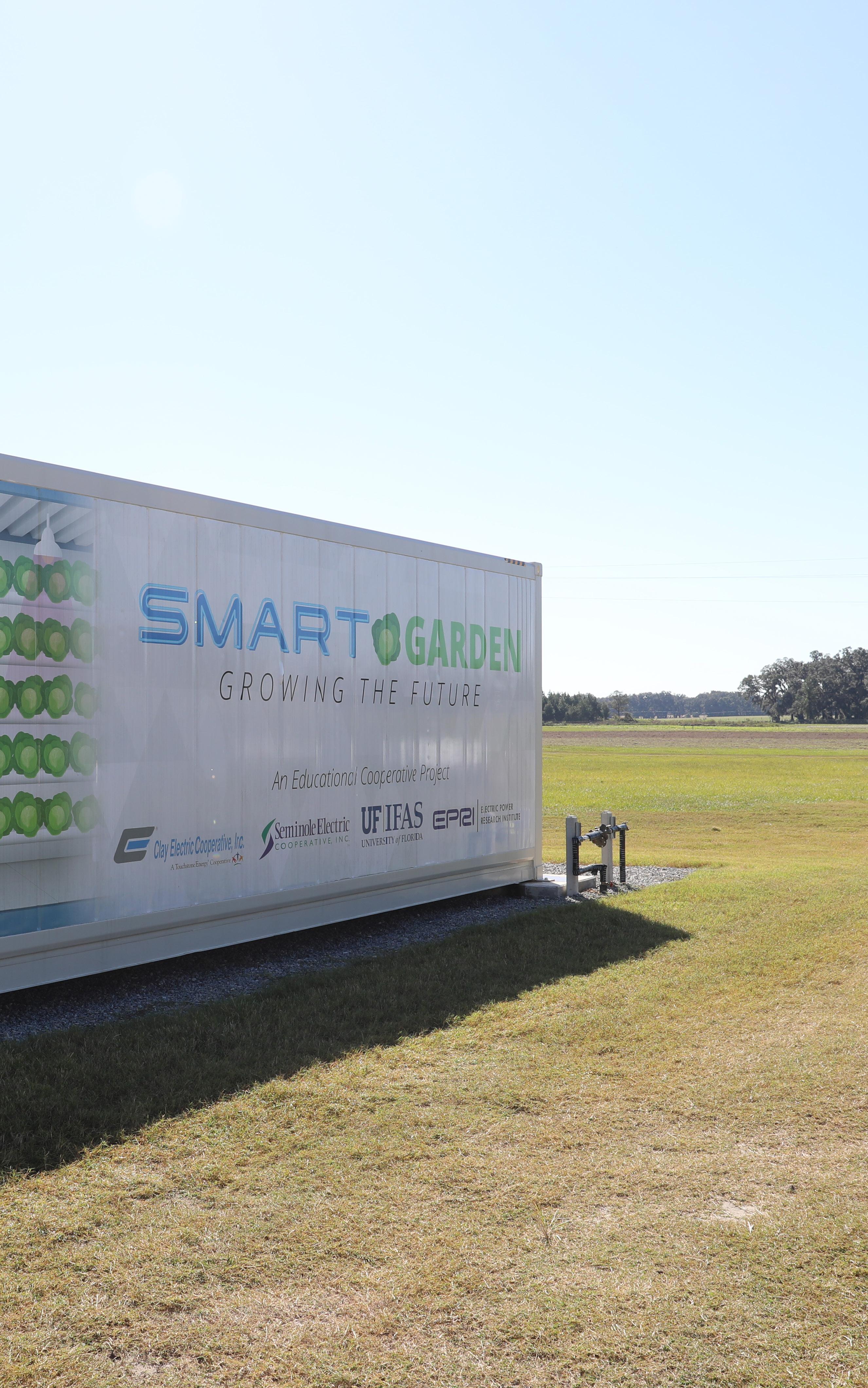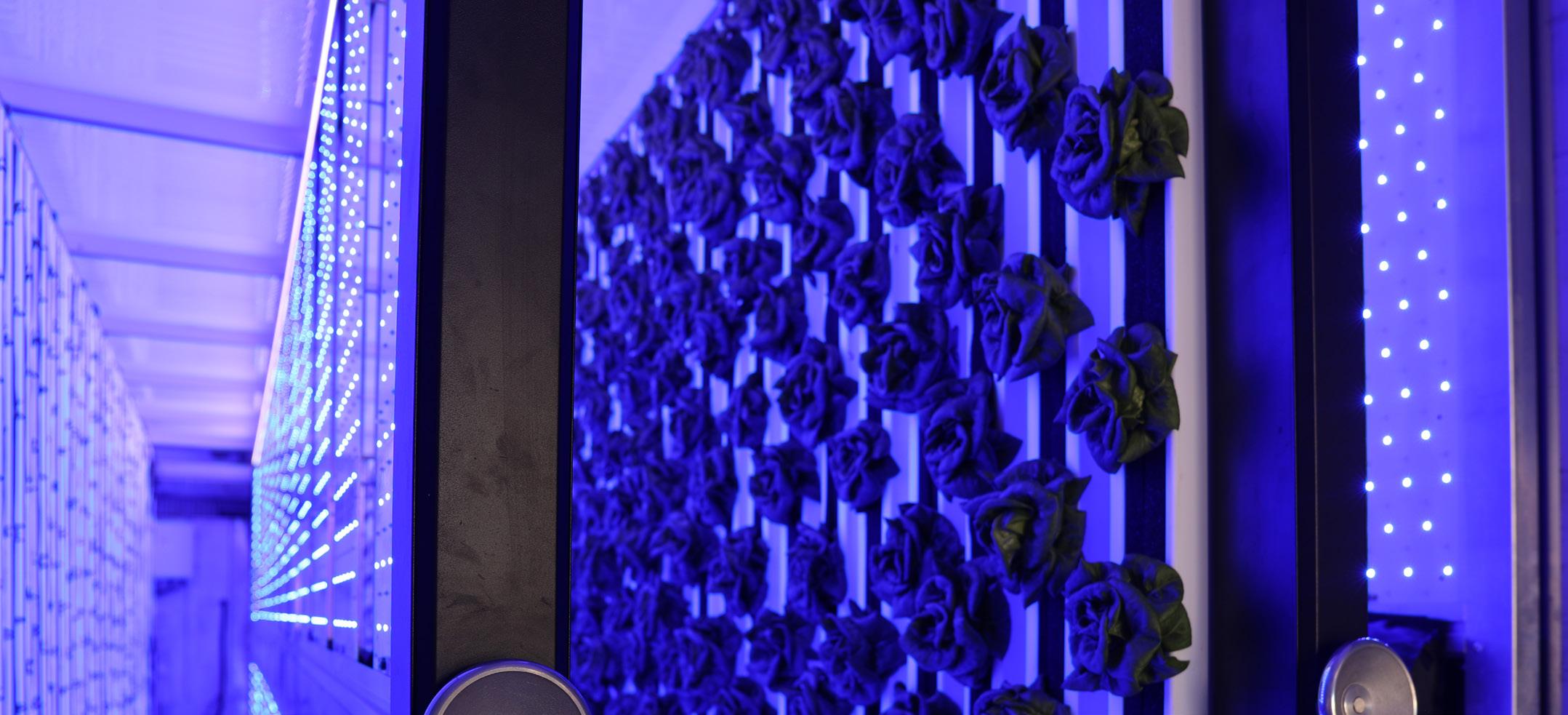
4 minute read
Outwitting Environmental Curveballs with Vertical Farming
In a world where climate uncertainty and food scarcity are becoming increasingly pressing issues, Ying Zhang, Ph.D., an assistant professor at UF’s Department of Agricultural and Biological Engineering, is working on solutions.
Her research focuses on cultivating optimal growing conditions through vertical farming, a method that allows for the cultivation of crops in a controlled environment, using a combination of modified hydroponics, LED lighting, and advanced climate control systems. By maximizing space efficiency and reducing water consumption, vertical farming has the potential to increase crop yields while minimizing environmental impact. Precise lighting and temperature control allow farmers to create an ideal environment for plant growth, regardless of outside weather conditions.
Climate controlled container farming gives a new spin on the idea of a secret garden; you’d never expect from the modest exterior what’s going on inside. When you open the shipping container door to Dr. Ying Zhang’s vertical garden, an absolute lettuce party lies within. A bright red hue bathes the interior, casting deep burgundy shadows under the plants that are plugged into their substrate pots lining shelves that are organized like rows of books in a library. At timed intervals the light switches to a blue spectrum and the whole mood changes.
“The beauty of using LED lights is we can customize the light ‘recipe’ or the combination of the light’s color or spectrum to maximize production. Blue and red lights are identified as the most photosynthetic, effective light for leafy greens,” Zhang explains.
In addition to saving space and protecting plants from weather events, vertical container farms also have a fantastic capacity for conserving water. By recirculating water and using advanced irrigation systems, farmers can conserve up to 90% of the water used in traditional farming methods. This not only reduces the strain on local water resources but also makes vertical farming an attractive option for areas with limited water availability.
“Controlled Environment Agriculture is water efficient, much higher than open field production. Think about the water balance in an indoor farming system - the plants take up the water and they consume the water, but also transpire the water into the atmosphere. The water evaporated into the atmosphere can be condensed through the air conditioning system and back into the nutrient tank,” she explains.
Whether vertical container farming is a financially viable option for small scale farmers is not a simple yes or no. While the initial investment in vertical farming infrastructure is high, Zhang’s research has shown that the long-term benefits of increased crop yields, reduced water consumption, and improved food quality may have some weight in northern areas with extreme cold conditions. In these circumstances, vertical farming can be comparable to greenhouse compact production in terms of energy use efficiency. This means that farmers in areas like Canada or Scandinavia may be able to reap the benefits of vertical farming without breaking the bank.
Controlled Environment Agriculture is energy and space efficient and conserves water.
“Last year we received a 2.5 million dollar grant from the USDA Sustainable Agriculture System program to improve the sustainability of greenhouse production systems and to address carbon emissions. My program specifically contributed to improving greenhouse design and natural ventilation and shading control to improve cooling effectiveness, energy use efficiency and climate uniformity. We are also developing a smart climate control solution, applying AI to optimize the control of greenhouses to further improve their resource efficiency,” Zhang professes.
Article by: Samantha Jones

So what’s next for this revolutionary technology? Zhang is currently working on developing smart climate control solutions using AI to optimize greenhouse control.
While her vertical indoor farming project has far-reaching applications for climate uncertainty or food scarcity, her program also looks into other controlled agriculture systems such as greenhouse production systems.
As we look to the future of farming, it’s clear that indoor farming can play a major role. And the innovation of vertical farming, with its ability to provide optimal growing conditions, reduce water consumption, and increase crop yields and space efficiency, is an innovative approach that has the potential to feed a growing global population.










